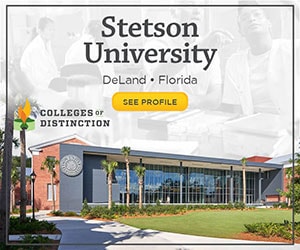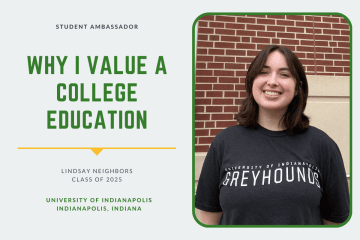The Significance of General Education and High Impact Practices for 21st Century Students
The accelerating pace of change generates more and more information in the world making it exceedingly difficult to master all the content. In addition, the number of jobs held by individuals in their lifetime is growing with the Bureau of Labor Statistics reporting an average of just under 12 jobs held by individuals between the age of 18 and 48. How can someone have the requisite knowledge to be successful in this dynamic environment?
This is where a relevant and engaging general education program can facilitate nimble skill-building for 21st century college students. Rather than focusing on educating undergraduate students through comprehensive knowledge on a given subject, general education can lay the groundwork for the development of intellectual habits that lead to a fulfilling life and career. In the AAC&U publication, General Education Transformed, Paul L. Gaston critiques common practices in general education:
“When general education is organized mainly as an à la carte menu of disconnected survey courses, and when it is taught in huge lectures that emphasize content delivery over critical inquiry while neglecting students’ own active participation in their learning, it falls far short of its intended horizon-expanding purposes.”
Gaston points to the wisdom of the Liberal Education and America’s Promise (LEAP), which emphasizes essential learning outcomes, high-impact pedagogical practices, assessment, and signature work. At Portland State University, LEAP is thoroughly embraced in its general education program known as University Studies (UNST).
For 22 years, University Studies has brought integrated, interdisciplinary education to PSU, the public university with the largest student population in the state of Oregon. The program is guided by four learning goals addressing communication, critical thinking, ethics and social responsibility, and diversity, equity, and social justice. Each of these goals have level-appropriate rubrics that are used to assess student artifacts and determine where program improvement should be directed.
The 45 quarter-credit curriculum starts with Freshman Inquiry (FRINQ) taught by a full-time faculty member in classes of no more than 36 students. The year-long, 15 credit hour FRINQ courses are organized into about a dozen engaging themes for students to choose from (i.e. Portland, Race and Social Justice, Design and Society).
FRINQ courses, like all UNST courses, are interdisciplinary addressing writing, science, social science, and humanities. UNST pedagogy emphasizes reflective practice and self-authorship and eschewing long lectures and standardized testing. Each of these FRINQ courses is assigned an upper-division student peer mentor who is not a teaching assistant (they do not grade student work), but rather serves to promote student success by sitting in on the class and meeting with students in small sessions of 12 where they explicate coursework, direct them to campus resources, and generally help them make the transition to college.
In their second year, students take three Sophomore Inquiry courses (SINQ), which are 4-credit courses with a 36 student upper-limit and a graduate mentor assigned to the course. These courses serve as gateways to themes for which students will subsequently take three 4-credit Cluster courses during their junior year. Approximately 20 SINQ/Cluster themes are available including American Identities, Global Environmental Change, Popular Culture, and Science in Social Context. These themed courses have aligned learning objectives that allow students to dig deeper into a subject outside of their major. Although students cannot take these courses for credit toward their major area of study, they can support the completion of a minor.
Finally, in their senior year, students take a Capstone course. This course is not a disciplinary course but rather a general education capstone that, like all UNST courses, is open to all majors. The Senior Capstone is a 6-credit community-based learning course with an enrollment cap of 15. Students work with established community partners to apply what they have learned on problems and issues in the region. There are over 400 capstones to choose from addressing pertinent issues such as food insecurity, homelessness, environmental sustainability, and serving individuals with mental disabilities. Intentionally described as community-based learning experience rather than service learning, students have significant reading and writing assignments that apply the skills they have learned throughout their time in University Studies.
Students in University Studies are given an electronic portfolio account that they may retain for life. The ePortfolio allows faculty to structure experiences where students can reflect on their education to develop a narrative of growth and meaning. It also allows for the intellectual processing of signature experiences and prepares students to manage their digital identities whether in service of graduate school or a career.
What do students have to say about University Studies? Many students come to University Studies with some skepticism because it is a different approach and because they want to focus on their major curriculum. However, student often express how much they enjoyed and benefited from the UNST courses after they experience them. Here are a few examples:
“My FRINQ teacher, helped me stay motivated and was supportive of my college attendance, despite my personal life challenges. He also took my academic advising bad advice to someone who could do something about it, which I really appreciated. He also made time to meet one on one with me about what I need to do to improve my writing skills, which led me to take a writing class that I LOVED.”
“Our capstone addressed such an important and necessary utility -> water. I can take the info I learned about how difficult it is to run a public utility and apply it to many other social and political areas. This capstone enhanced my critical thinking skills.”
“Nothing taught in a classroom could even come close to what I have learned here in my Capstone. The fact that it was learning through experience! I feel like I’ve learned much more than I would have in an actual classroom with books, lecture, or presentation. Nothing beats experience!”
Our students come to really appreciate their engaging courses. People seldom choose a university based on their general education program, but at Portland State University, I like to say, “Come for the major, stay for the University Studies experience.”
– College Learning for the New Global Century-College Learning for the New Global Century





